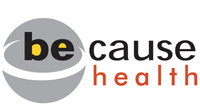SESSION D: WHERE EDUCATION MEETS HEALTH
HEALTH EDUCATION FOR CHILDREN AND ADOLESCENTS
- Organisers: Belgian Red Cross Flanders (BRC-F), International Diabetes Federation (IDF)
- Language of the session: English (no translation)
- Moderator:
Developing adequate and contextualised teaching materials to promote general understanding of diabetes and first aid to enhance children and adolescents’ ability to be more resilient, safer and healthier.
In Sub-Saharan Africa, approximately 5.1 million deaths each year are due to conditions that are potentially addressable by prehospital and emergency care. As both prehospital and emergency care are underdeveloped in most low and middle-income countries, first aid training is promoted by the World Bank as a very cost-effective way to decrease the burden of disease and injury. Children are never too young to learn first aid. The earlier children are taught first aid, the more this becomes a daily routine.
The incidence of diabetes among children is increasing in many countries. IDF estimates that there are 1.106.200 children and adolescents (0-19 years) with Type 1 Diabetes worldwide. In addition, the incidence of Type 2 Diabetes is increasing rapidly amongst children and adolescents. Schools forms a significant part of every child’s life and developing diabetes in childhood can negatively influence the school experience. Unfortunately, educational institutions in many countries do not have support from clinical staff with expertise in diabetes or information and age-appropriate education resources. Therefore, IDF has developed the Kids and Diabetes in Schools (KiDS) project to foster a safe and supportive school environment.
SESSION PROGRAMME:
- Developing first aid materials for children in Africa
Dr Jorien Laermans will focus on the development of evidence-based first aid educational materials for children in sub-Saharan Africa, an ongoing project of the Belgian Red Cross-Flanders.
She will explain how BRC-F developed an “educational pathway” that indicates at what age children can reach certain objectives at the level of knowledge, skills and attitudes concerning first aid, and how a list of recommended educational methods and materials was developed. Both health and educational experts were involved during the development stage of the project, leading to the creation of the actual materials that were piloted in several African countries, enabling the organisers to further tweak them to the preferences of the children and trainers. This experience is a very good example of education meeting health, and how a scientific approach can be used to increase impact.
Lieve Adam will introduce how the first aid material is used in school settings and give a brief overview of the experiences and challenges of BRC-F implementing first aid programmes in Africa using evidence based contextualized materials.
- Implementation and evaluation of the IDF KiDS project in Brazil and India
Dr Monika Arora is part of the KiDS Advisory Committee and led the KiDS team in India during the implementation and evaluation phases of the project. She will touch upon the development of the resources such as the KiDS information pack, as well as how the project was implemented simultaneously in both India and Brazil through training sessions to primary school teachers and primary school students. She will conclude with a reflection on how to take the project to the next step through advocacy, urging national governments to include the KiDS project into their health and education programmes.
- Q&A with participants on the topic of developing materials /introduction into the curriculum
This panel discussion will give speakers and the audience the opportunity to discuss how health education projects can be introduced into the official education curriculum. It provides an opportunity to discuss the opportunities and challenges organisations may face, including the involvement and commitment of governments to make such projects successful and sustainable.
